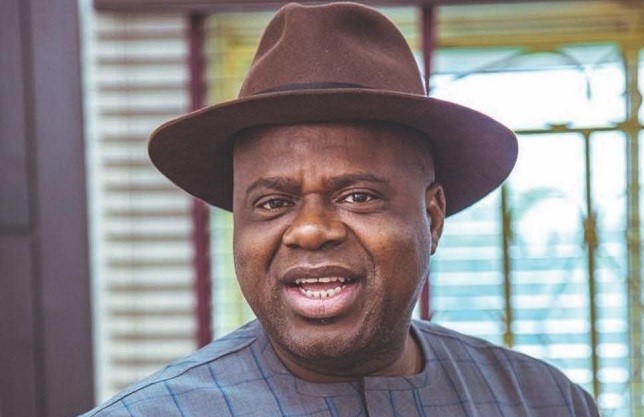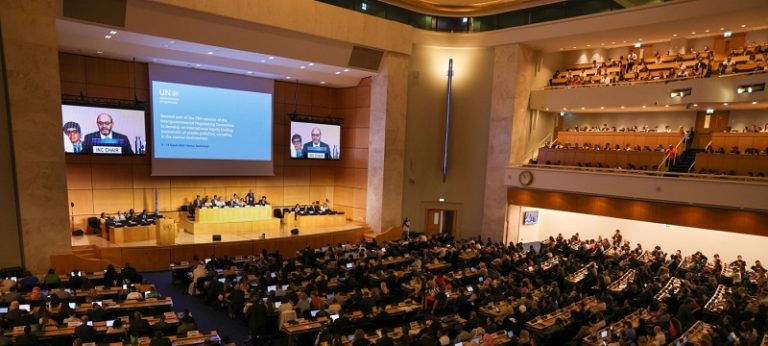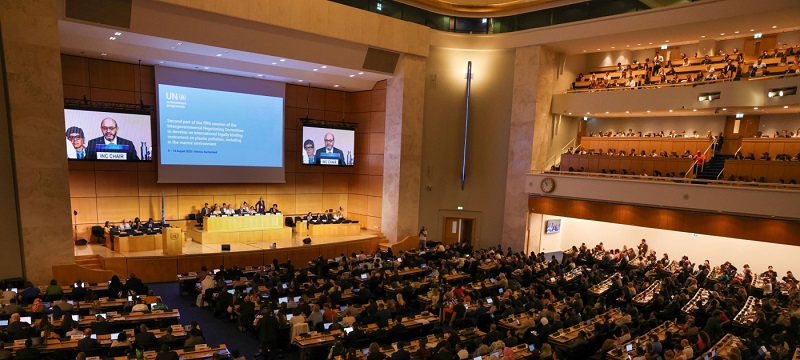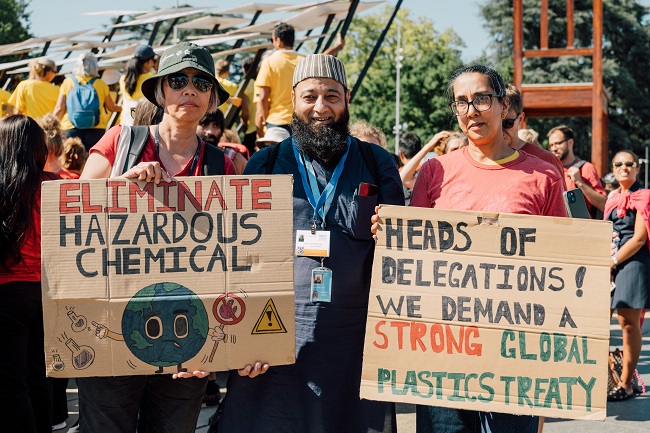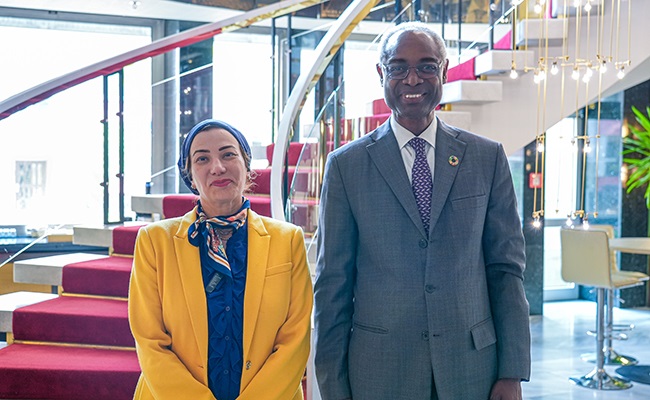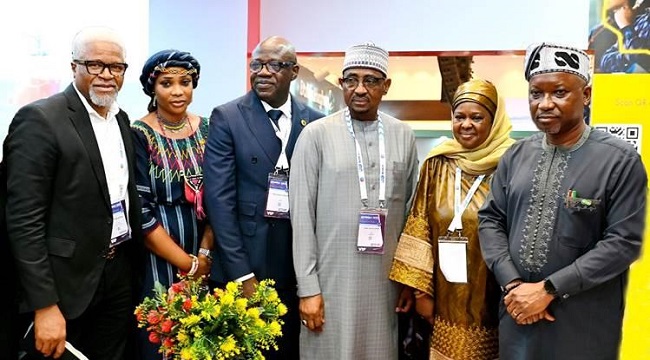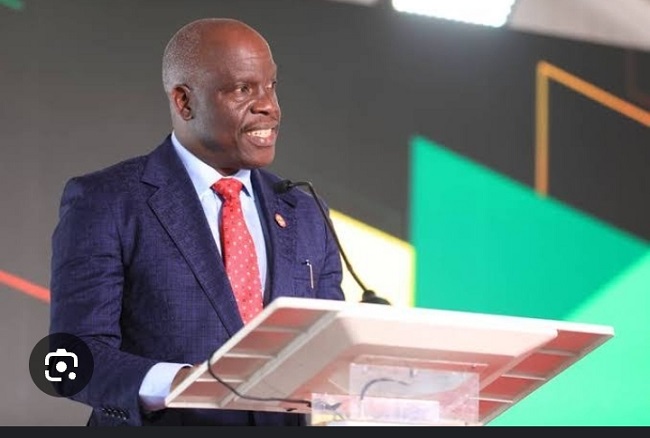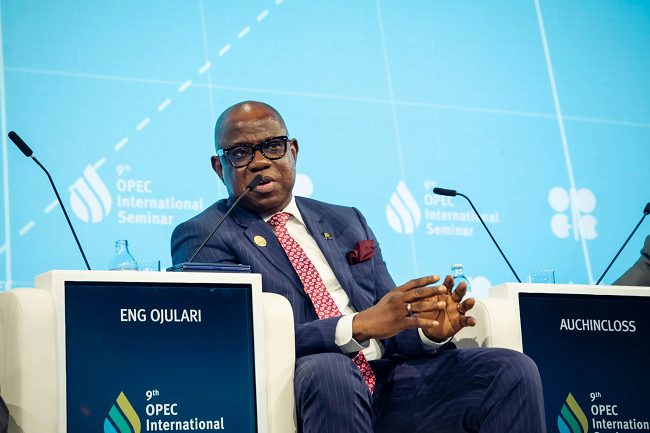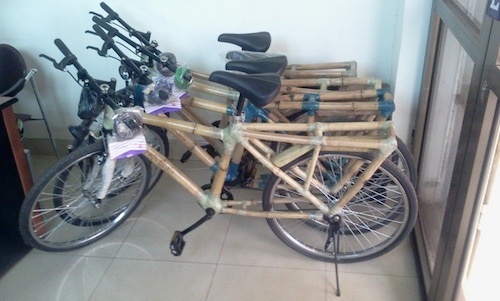Officials of the Abia and Imo State Governments have said that adequate measures have been put in place to avert the perennial challenges of flooding usually experienced every rainy season in the two sister-states.
The Executive Secretary, Abia State Emergency Management Agency (SEMA), Dr Sunday Jackson, spoke extensively on specific steps already taken by the Gov. Alex Otti-led government to battle the phenomenon this year.
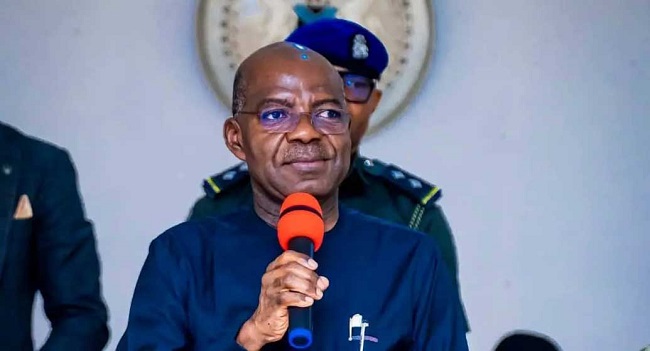
Jackson said in an interview in Umuahia that the government’s efforts were designed to enhance community resilience and reduce flooding risks.
He said that SEMA, collaborating with the National Emergency Management Agency (NEMA), had earlier carried out downscaling in some flood-prone communities in the state.
He described downscaling in flood sensitisation as “the process of disseminating early warning strategies to flood-prone communities to increase their preparations against flooding and reduce their risks”.
He said the exercise involved sensitising stakeholders, community leaders, and local government officials on flood risk management, early warning systems, and effective response mechanisms.
He also explained that the agency had been meeting with relevant stakeholders for preparedness to enable it to respond promptly when the disasters eventually occurred.
Jackson said that the government had inaugurated a committee to sensitise communities in the flood-prone Local Government areas (LGAs).
He listed the LGAs identified by the Nigerian Hydrological Services Agency (NIHSA) and Nigerian Meteorological Agency (NiMet) to include Aba North, Isiala Ngwa North and Isiala Ngwa South.
Others were Isuikwato, Ukwa East, Ukwa West, Umuahia North and Umuahia South.
Jackson said that Flood Red Flags Awareness Committee inaugurated by the Commissioner for Environment, Mr. Ogbonna Asonye, was expected to start its two-week-long state-wide sensitisation of flood-prone LGAs from Aug. 4.
He said that the government was extending its measures to other flood-prone LGAs, such as Ikwuano, Ugwunagbo and Obingwa, not mentioned in the NIHSA and NiMet forecasts.
The SEMA boss said that, in addition to the flood risk awareness campaign, the agency had begun stockpiling and pre-positioning of relief materials for areas that would be affected.
Jackson said that SEMA had also identified high ground areas where people could be taken, if their residences got submerged.
“We have a resettlement centre at Mgbarakuma in Umuahia South LGA, even though the construction is ongoing; we are also doing massive assessment of communities affected by flooding.
“The essence is to enable us know those affected, the magnitude of the flood before we seek possible government intervention.
“But the disasters that are beyond the capacity of the state, we can now look out for NEMA and other development partners that will assist to cushion their effect,” he said.
A visit by our correspondent to Umuafai, one of the flood-prone communities in Umuahia North LGA, for an on-the-spot assessment, showed that government had initiated some measures to mitigate the disaster.
A community leader, Chief Patrick Amakwe, confirmed that SEMA, in collaboration with NEMA, did downscaling in the area in May.
“The government officials that came here have sensitised us, including educating us on proper drainage maintenance and de-silting practices,” he said.
Meanwhile, the General Manager, Abia State Environmental Protection Agency (ASEPA), Mr. Ogbonnia Okereke, said the agency had taken steps to guard against potential flood threats in the state.
Okereke said that ASEPA had embarked on an intensive and ongoing clearing and de-silting of drainages, stormwater channels, and natural waterways in the state.
He said that the exercise was crucial in ensuring free flow of water during heavy rainfall, which would reduce the likelihood of flooding.
“We are making sure all the drains and storm channels are clear of debris and soil so that the water can flow freely,” he said.
Okereke said that, in addition to clearing channels, ASEPA had activated the monitoring of water levels in areas known to be susceptible to flooding in the state.
According to him, the agency has a contingency plan in place to relocate residents, should water levels pose a threat.
“There is continuous monitoring, and if the need arises, we will urgently relocate people.
“But of course, relocation is always tricky because many residents don’t want to leave unless they see an immediate danger,” he said.
Okereke further said that ASEPA had also commenced enforcing regulations against indiscriminate building on floodplains and blocking of drainage channels to reduce flood risks.
“We don’t allow anybody to build on natural water channels. If we see such structures, we stop them,” Okereke said.
He explained that flood response efforts were inter-agency coordinated, implying a shared responsibility between ASEPA and other relevant departments, especially for evacuation plans and emergency responses.
“The major constraint is the state’s inability to access ecological funds from the Federal Government, though we are working on it as a government,” he said.
Okereke said that ASEPA had launched public awareness campaigns aimed at changing environmental behaviour among residents.
“We are telling our people not to dump waste into gutters or waterways and keep their environments clean,” he said.
He urged residents to be environmentally-conscious and partner with the government in preserving the ecosystem.
The Executive Director of Foundation for Environmental Rights, Advocacy and Development (FENRAD), Mr Nelson Nwafor, said that the foundation had started driving grassroots action to reduce flood risks.
Nwafor said that his organisation had conducted baseline studies and engaged flood-prone communities to assess infrastructure and vulnerability to future flooding.
He said FENRAD was planning a community capacity-building programme in partnership with SEMA and national actors to boost preparedness and resilience.
Nwafor urged government agencies to act swiftly, warning that climate forecasts signalled the real threat of devastating floods in parts of the country.
He described ongoing flooding in Plateau and other states as warning signs of what could happen in Abia, if measures were not urgently taken.
He also expressed concern over the lack of cooperation from government agencies, such as SEMA, which he said had been slow to engage with civil society organisations.
According to him, FENRAD’s attempts to initiate dialogue and offer technical support had not received positive responses from relevant government bodies handling flood mitigation.
He said that government agencies may have their strategies but were not working in synergy with advocacy groups and civil society organisations closer to the communities.
Nwafor stressed that without inclusive planning and shared responsibility, interventions would fall short and communities would remain dangerously exposed to the risks of flooding.
He called for increased awareness campaigns, inclusive mapping of flood-prone areas, and resilience-based infrastructure planning to reduce vulnerability and enhance public safety.
On community participation, he said baseline studies must involve residents, identify problems, responsible actors, time frames, and methods for solving flooding and environmental challenges.
He advocated direct engagement of local populations, including women, youth, and persons with disabilities, in all planning, education, and intervention efforts.
According to him, holding events in state capitals was not enough as interventions should happen in communities facing the actual ecological threats and risks.
He said inclusive consultations, site visits, and knowledge sharing remained essential to achieving long-term and community-owned flood solutions in Abia and other vulnerable states.
Also, a journalist, Mr. Imeremba Imeremba, recounted how recent flooding in his community; destroyed household items and forced residents to seek shelter elsewhere until the water receded.
Imeremba said that the community had since started taking precautionary steps, such as safeguarding household belongings at the onset of the rainy season.
He urged the government to provide timely alerts and emergency shelters for flood-prone communities, including enforcing relocation policies and building floodwater restrictions in vulnerable areas.
He also identified harmful local practices, like sand excavation and construction over waterways as key contributors to recurrent flooding in the community.
Also in Imo, stakeholders expressed readiness to implement precautionary measures to mitigate the impact of flooding, following warnings from Nimet and NIHSA.
Contributing, Mr. Nnamdi Igwe, the Head of Operations, NEMA, Owerri Zonal Office, said the agency had held series of meetings with other stakeholders in the state over the impending flooding.
“Last week, we concluded trainings on basic first aid, camp management, and preparedness of stakeholders.
“In terms of stocking of items, NEMA Director-General has graciously approved relief materials in preparedness for the impact of the flood during the rainy season.
“We already have tents and more than enough relief materials all stocked at the Owerri warehouse,” he said.
Igwe said the agency conducted weekly checks on the rising level of the Oguta lake as part of efforts to monitor the situation so as not to be taken unawares.
According to him, it has been raining for over a month non-stop, and during our visit last week, we discovered that the lake had risen a bit.
He said that the agency was collaborating with SEMA and Imo Ministry of Environment on the preparation of camp for those that would likely be displaced by the flood.
The operations officer said that similar preparations were ongoing in Abia, which also falls under the Owerri Zone.
He further disclosed that the Director-General of the agency had approved the delivery of a brand new ambulance for the zone in case of eventualities.
He advised those living around the flood-prone areas to be wary of the river tide, especially at nights when they retired to asleep.
“Everybody should be attentive, listen to news, radios and have their go-bag for quick relocation to upper ground.
“Don’t say the place is your ancestral land and, therefore, sit down and fail to take precautionary measures.
“We should always be prepared as disasters come without warnings,” he emphasised.
He urged those who may not want to go to the camps prepared by the government to move early to other safer upland areas.
“The most important thing is that we don’t have to wait for the flood to come before taking precautionary measures,” he said.
Similarly, the National Inland Waterways Authority (NIWA) urged residents of flood-prone areas in the state to adopt preventative measures to mitigate the impact of the impending flood disaster.
The Owerri Area Manager of NIWA, Mr. Vincent Odia, said the authority had initiated sensitisation campaign on flood control and safety on waterways at Oguta in Oguta Local Government Area of the state.
Odia said that the campaign was aimed at preventing avoidable loss of lives and property, following the predicted 2025 flooding.
He emphasised that most accidents on waterways were caused by human carelessness rather than supernatural forces.
“The essence of the engagement was to bring disaster awareness to residents of high-risk areas, where floods usually strike first.
“It would be a great disaster that they went on a journey and did not return.
“Most of these accidents that happen on our waterways are not caused by demons but as a result of our carelessness,” he said.
Odia, therefore, urged residents in flood-prone areas to abide by the directives on safety by avoiding late night transportation on the waterways and also ensure the use of life jackets, among others.
On his part, the state Commissioner for Special Duties, Mr. Nelson Abazu, affirmed the state’s commitment to mitigating the effects of the impending flood disaster in the state.
Abazu urged residents of flood-prone areas to relocate to safer grounds.
He assured them that the State Government had concluded necessary logistics to relocate and safeguard the lives and property of residents.
“As soon as we notice the rise in water level, the government will issue alerts and instructions,’’ he said.


